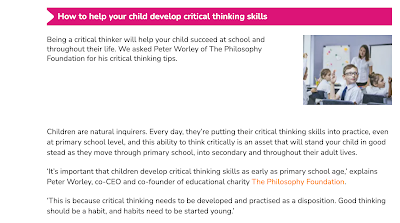Malo e lelei
Christine Tupou-Fonua
Y7&8 Team Leader and Teacher
Across school CoL
Inquiry:
My inquiry this year focused on two things:
Critical Thinking and transition into High school.
What was happening?
The Year 9 drop-off was often a ‘topic of discussion’ in our PLG meetings
Drop in student attendance
Several pastoral incidents
Students continue to navigate the onset of adolescence
What evidence do I have to support this?
91% of Y9 students scored a stanine 4 or below in their beginning of year PAT assessment
There is also evidence that the likelihood of students staying in school can be heavily
dependent on the success of their transition into secondary school.
Some studies have shown that secondary school drop-out rates are lower when
students’ contributing primary/intermediate schools have clear secondary school transition
programmes to help students prepare socially and academically for the upcoming changes.
What changes did I make?
-Collection of assessment data was used to inform what to focus on in reading-My intervention this year was to create a mentoring group involving six Y9 students and six Y8
students.
-We started in Term 2 with a “get to know you”’ session where the mentor/mentee created learner
profiles.
-Subsequent sessions became more educational based and varied - including a Critical Thinking
session, a Q&A session where Y8 learners interviewed their mentors about High School, and a
debate session - mentor vs mentee, about propositions Y8 learners came up with.
-Students also got to share their reflections on a professional reading assigned to them.
-The most recent session, “Shadowing your Y9 mentor for the day”, saw the Y8 students spend
the day at Tamaki College - to experience a “day in High School”.
-The above selections are just a sampling of what was offered.
-The purpose of the intervention was for the Y9 students to act as Mentors/advisors/coaches for
the Y8 learners.
-The Y9 learners were my ex-students from last year and their dean agreed they were suitably on
track with their own learning to participate.
-I worked closely with Albert Tu'uga Stevenson to make this happen so huge shout-out to Albie,
and to Amber George and Dorothy Apelu.
-Special thanks too to Scott Mansell, whom I’ve met to talanoa with about how best we could
implement a similar programme next year.
-I am keen to strengthen the relationship between Secondary and Intermediate, to work together
and identify further needs to be addressed to enhance a smooth transition.
-The sessions were not solely planned by me.
they thought was important to focus on, and what they wished they had available to them when
they were in Y8.
-Termly e-asttle tests were also assigned to the Y8 learners.
Some literature that helped me along the way?
-RPI resources on critical thinking-Ted Talk videos and scholarly articles on Critical Thinking
-Articles on primary & secondary transitions found on the education hub
Hardest thing for me to change?
-Adapting to different educational settings and changing my practice to cater for older cohort of kids-Understanding the importance of showing empathy, dealing with divergence and the challenges of
early adolescence
-Figuring out a way of how I could implement Critical thinking learning into the intervention.
-Thanks to conversations with colleagues and SLT, including this in the mentoring sessions
became the solution
-Working with the scheduling and timetabling of High School. It was so hard to find the
time/availability to schedule the sessions but thanks to Albert Stevenson for his time and actually
helping me make this work
My Wonderings
-What known and unexplored elements of a mentoring programme would best support Y8stransition into Y9 at High School?
-How might a collaborative approach for High School and Intermediate support this cause?
-Perhaps teacher exchanges and/or a badge system at intermediate that relates to the NCEA
structure
For explicit detail on this intervention and student achievement data - please check
out my professional blog 🙂
Malo ‘aupito





























